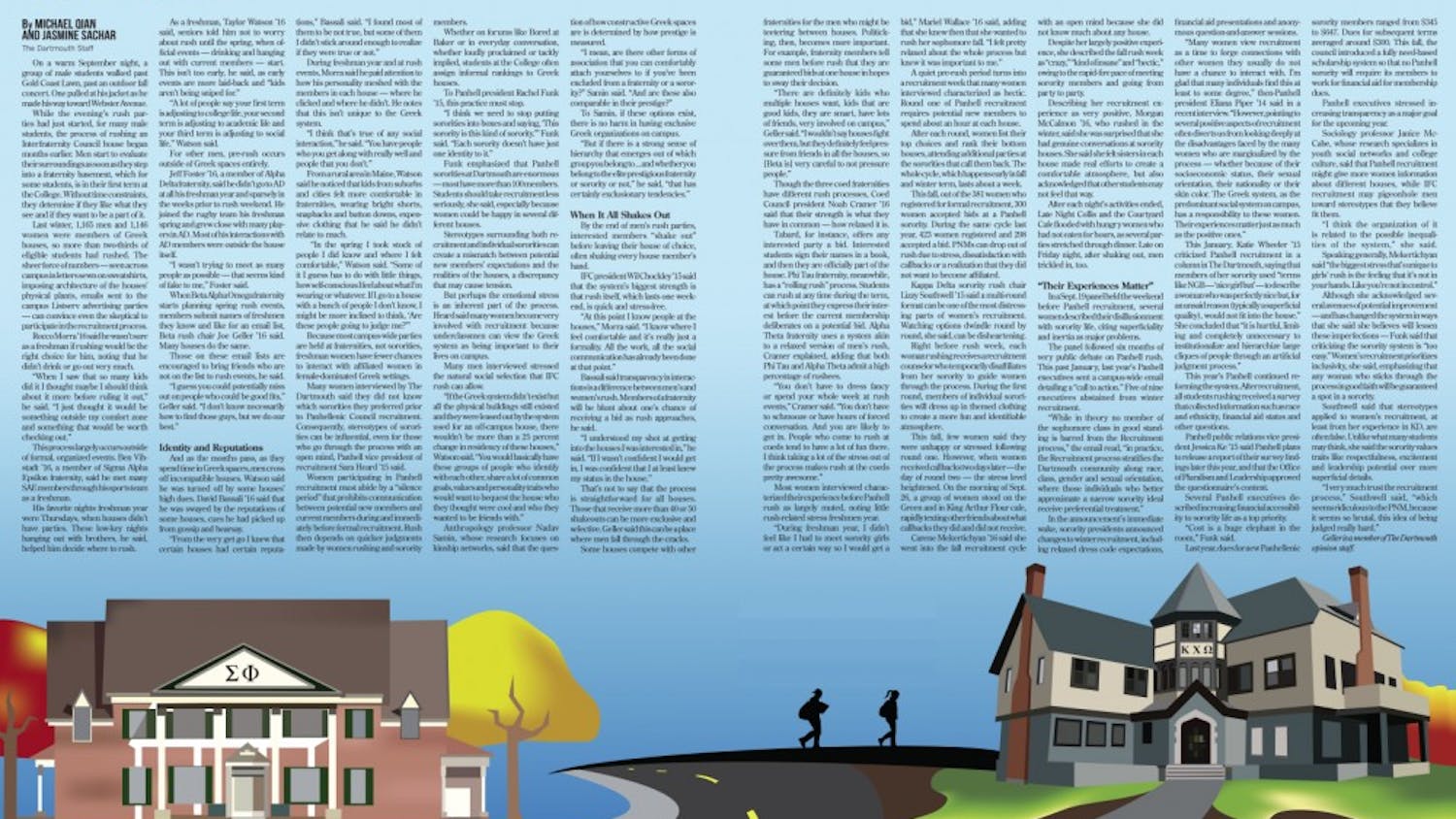High-profile scrutiny has hit other academic institutions, from Bowdoin College to Wesleyan University, regarding Greek life.
Trustees at Wesleyan have put forth a new policy forcing all residential Greek organizations to go coed within the next three years if they want to keep their houses. If an organization opts not to go coed, its house will be repossessed by the university. It will still exist as a single-sex organization without a residential space on campus.
Greek life on Wesleyan’s campus has experienced other significant changes within the past year as well. After a student suffered an accident at a late-night event at residential fraternity Beta Theta Pi, the fraternity lost its house, now off-limits to students, and was suspended by its national organization. University administrators, along with local fire marshals, instated new regulations regarding on-campus residences’ occupancy levels that significantly decrease the number of individuals allowed in a house at a time, thus constraining Greek houses’ abilities to host on-campus events.
Though his house does not have a residential space on campus, senior Michael Creager, president of Wesleyan’s chapter of Alpha Epsilon Pi fraternity, said that up until this past year, Greek houses were a significant source of student social activity. However, he said, “Wesleyan social life was never just the Greeks,” citing senior on-campus residences as another important element of nightlife.
“The social scene on campus has kind of diminished in general,” Creager said.
Creager said that the new coed policy was a conscious effort to create inclusive and equal spaces and decrease the rates of sexual assault on campus.
“My hope is that these steps will help with these goals,” Creager said. “I’m unsure as to whether or not the two remaining residentials are going to go coed or not. It’s up to them — it’s an internal matter.”
He said he was unsure if the policy would prove effective at promoting inclusivity and hoped to see the system become more open and safe, regardless if the remaining two fraternities opt to change.
Wesleyan has one sorority, which is not subject to the policy because it does not have residential housing.
Though Amherst College banned on-campus Greek organizations in 1984, it has also eliminated off-campus “underground fraternities” this year as a result of concerns about alcohol use, hazing and sexual assault.
Amherst’s student government drafted a referendum petitioning to reverse the decision. Over 1,000 students voted on the issue, with 70 percent supporting the motion to overturn the ban, the Boston Globe reported. The 1984 on-campus Greek organization ban was also poorly received by the student body.
Bowdoin College banned Greek life altogether in 2000, as a result of administrative concerns regarding dangerous alcohol use and the houses’ physical conditions.
Mike Amato, who graduated from Bowdoin in 1993 and was a member of Alpha Kappa Sigma fraternity, said that the Greek system was central to Bowdoin’s social scene when he attended. Almost everyone he knew at the small college was affiliated, he said.
He considers his administration’s move to abolish fraternities a poor choice.
“It was particularly hard on the people who were in the fraternity at the time,” Amato said. “My brother was in Alpha Kappa Sigma at the time it closed down, and it made his social life miserable for about a year and a half, being in limbo.”
Amato said that banning fraternities was a move based on the false assumption that high-risk behaviors are caused solely by fraternities. He said that he personally did not experience any of these problems while he at Bowdoin.
Nicholas Mitch, a Bowdoin freshman, said that Bowdoin’s social scene today revolves around eight social houses. Every Bowdoin freshman comes into Bowdoin affiliated with a house. Freshmen are also assigned sophomore “buddies” in the corresponding house to help them adjust to college life.
Mitch said the social house system is analogous to the classic fraternity and sorority system in some ways, but “milder” and more inclusive.
“There’s no hazing. They’re very open,” he said. “You can go into any college house, and no one from any house is going to say you’re not welcome.”
He also said that because the college owns the houses, they receive significant administrative sanctions in order to foster a safe environment.


